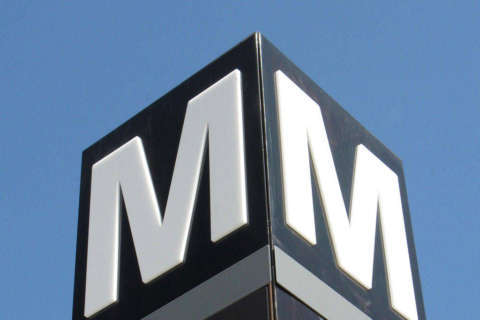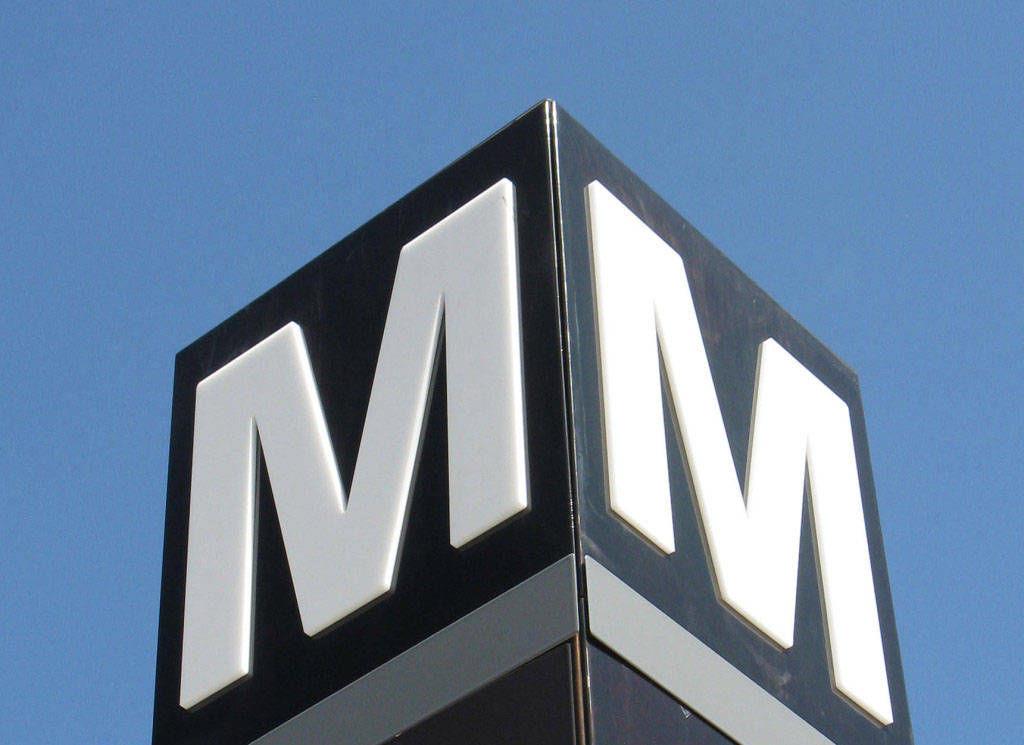
WASHINGTON — A whistleblower lawsuit was filed more than a year before the Metropolitan Washington Airports Authority and contractor Capital Rail Constructors say they learned that defective concrete panels were installed at five new Silver Line stations.
Virginia and the federal government are joining the False Claims Act and Virginia Fraud Against Taxpayers Act lawsuit, the U.S. Attorney’s Office for the Eastern District of Virginia said Wednesday afternoon.
The suit was filed under seal in March 2016 by Nathan Davidheiser, who worked for Universal Concrete Products, the subcontractor that produced the faulty concrete panels. Davidheiser said he was directed by his employer to lie about quality control tests.
The Airports Authority and the main construction contractor, Capital Rail Constructors, reiterated to the authority board Wednesday though that they only recognized problems with the concrete panels in the first part of 2017 — a year after the lawsuit was filed.
The lawsuit triggered an investigation by the FBI and U.S. Department of Transportation Inspector General, because federal money was spent in the second phase of Silver Line construction.
The new stretch of rail line between Loudoun County and Reston is due to be handed over to Metro next year, with the line opening to riders in 2020 after testing and training is complete.
Concrete problems
Of the 1,569 precast concrete panels Universal Concrete Products is providing for the rail project, Capital Rail Constructors’ Keith Couch said Wednesday that 308 — about 20 percent — had too much water mixed into them, and 167 of those faulty panels had already been installed.
In another 47, the rebar inside was too close to the surface — a problem that was first flagged in February 2017 and required MRI scans of all of the panels that had already been installed. That problem was caught by an MWAA engineer who was visiting the concrete plant.
The separate water problem could have led the concrete to break down much more quickly than expected. Couch told the Metropolitan Washington Airports Authority Board Wednesday that Capital Rail Constructors first noticed it in April 2017.
“In April of 2017, CRC’s quality control manager noticed anomalies on the concrete batch tickets that were being produced by Universal’s automated concrete batch plant relating to the calculation of water-cement ratio,” Couch said.
CRC blamed it on a faulty moisture probe in an automatic mixer.
The whistleblower lawsuit cites other problems in the plant, though, and charges that there were deliberate efforts to conceal shoddy work from CRC and MWAA.
Capital Rail Constructors has agreed to put sealant on panels exposed to the weather starting later this year to keep water and salt out, and pay for the process to be repeated every 10 years.
The remaining panels without the proper amount of concrete covering the supporting metal rebar are scheduled to be replaced by mid-June.
“These issues do not pose a safety issue; all panels will meet the 100-year service life,” Couch said. “The schedule is not impacted.”
Virginia’s Attorney General’s Office and the U.S. Attorney’s Office did not join in the portion of the lawsuit that claims Capital Rail Constructors violated the false claims or fraud against taxpayers acts, suggesting that the FBI and inspector general investigations put the blame on the concrete panel manufacturer.
Caught early or late?
While Couch said CRC and MWAA identified problems early in the construction process, the whistleblower complaint details potential serious problems at the concrete plant much earlier — beginning in 2015, shortly after the company began providing the concrete panels.
The complaint unsealed Wednesday names UCP, the company’s owner, and a quality control manager — each of whom the federal government and Commonwealth of Virginia believe to be responsible for False Claims Act and Virginia Fraud Against Taxpayers Act violations.
A federal complaint is expected to be filed in the next few weeks, the U.S. Attorney’s Office said.
The complaint does not include CRC, which is a combination of Clark Construction and Kiewit Infrastructure South.
Davidheiser would be entitled to a portion of any money recovered in the suit.
He worked as a technician in the concrete company’s quality control lab, and said the concrete panels not only had water-mix problems but also used stone that did not meet requirements to reduce the risk of rusting.
According to the lawsuit, Davidheiser realized the significant ramifications of the potentially faulty concrete in late November 2015, and began keeping his own records of the true results of his quality control testing when concrete batches failed to meet requirements.
Separately, the quarry whose stone the company had promised to use for the concrete had closed, and a different one, with rocks that did not meet testing requirements, was used instead, the suit said.
The lawsuit also charges that the company cooked the books to cover up problems uncovered by testing, with a text message from a top company manager directing Davidheiser to “change the data.”
Later, Davidheiser either quit or was fired, although the precise circumstances of how he left the company is somewhat unclear.







